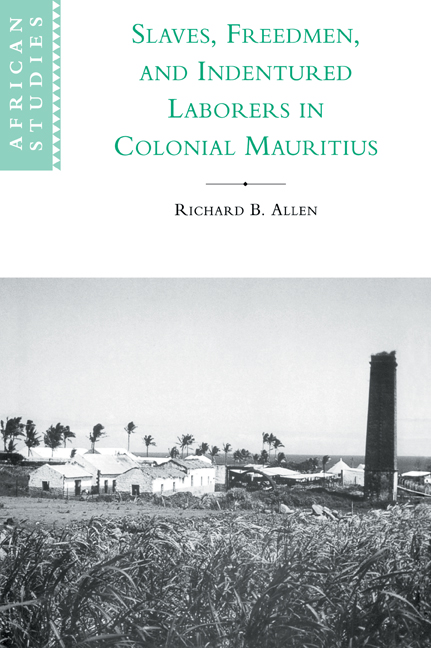The Overseer State
In this compelling work, Sascha Auerbach offers a bold new historical interpretation of late-stage slavery, its long-term legacies, and its entanglement with the development of the modern state. In the wake of abolition, from the Caribbean to southern Africa to Southeast Asia, a fusion of government authority and private industry replaced the iron chains of slavery with equally powerful fetters of law and regulation. This 'overseer-state' helped move, often through deceptive and coercive methods, millions of Indian and Chinese indentured laborers across Britain's imperial possessions. With a perspective that ranges from Parliament to the plantation, the book brings to light the fascinating and terrifying history of the world's first truly global labor system, those who struggled under its heavy yoke, and the bitter legacies left in its wake.
- The first book to examine slavery and indentured labor through a single historical lense.
- Illuminates the ways issues of labor, race and migration remain central to modern law and governance
- Offers a new model for understanding the 'global labor market'
Reviews & endorsements
‘This brilliant book about systems of labour governance across the British empire from late slavery through systems of indenture transforms our understanding of labour history and the world-historical context of workers’ demands for recognition of their rights and needs as human beings.’ Marilyn Lake, author of Drawing the Global Colour Line
‘A compelling account of the overseer-state across wide swaths of the British Empire. In this impressively researched book, Sascha Auerbach documents how the British state took on the role of labour management and control in its Atlantic, Indian Ocean, and Southeast Asian colonies as a result of amelioration, apprenticeship, and indenture.’ Gad Heuman, The Caribbean: A Brief History
Product details
March 2025Hardback
9781009315791
382 pages
229 × 152 × 22 mm
0.734kg
Available
Table of Contents
- List of Maps and Tables, Acknowledgements, Introduction: Paper Chains for Iron Chains
- 1. 'Not Fit for the Enjoyment of Freedo': Amelioration and the Origins of the Overseer-State, 1812–1834
- 2. 'To Go and Look for Law': Early Responses to the Overseer-State, 1823–1836
- 3. 'A Most Imperfect Act of Abolition': Apprenticeship and Early Indenture in the Atlantic and Indian Ocean Worlds, 1834–1842
- 4. 'A System Entirely Favourable to the Poorer Class of Natives': Health, Moral Reform, and Coercion in the Indenture System, 1840–1864
- 5. Man, In His Natural State ... Must Either be Led by Conviction, or by Force': Magistrates, Workers' Agency, and State Violence, 1840–1873
- 6. 'They Must Know Their Master, and He Must Know Them': Labor Governance and Sovereignty on the Imperial Frontier in Southeast Asia, 1867–1890
- 7. 'They Have Made the Government Arbitrary Enough': The Decline of the Overseer-State, 1870–1904
- Conclusion: The Persistent Legacies of the Overseer-State
- Bibliography
- Index.






